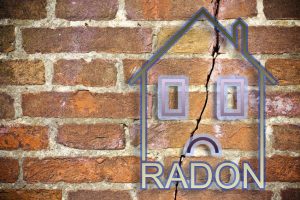 As winter approaches, it could be more than Jack Frost that’s nipping at your nose. Residential radon levels can increase during the colder months, especially in homes that are located in frigid climates.
As winter approaches, it could be more than Jack Frost that’s nipping at your nose. Residential radon levels can increase during the colder months, especially in homes that are located in frigid climates.
Families may also be more exposed to radon during the winter because they spend more time indoors where it’s safe and warm. But is your home really as safe as you think it is if radon levels are high?
Here are some of the reasons why winter weather has such a big impact on your home’s radon levels:
- Stack effect can draw more radon into the home. Stack effect is a common issue in many two-story houses. Stack effect is when the warm air inside the house rises up and escapes through the top of the houses by any means possible. The house replaces the missing air to equalize the pressure, sucking in outdoor air through drafts. Unfortunately, your home also draws air from the soil beneath the home, which pulls radon gas up from the ground and throughout the house.
- Snow can trap radon gas in the soil. Radon gas becomes more concentrated in the soil surrounding your home during the winter months. This is because the layers of snow on top of the ground outside keeps the gas from naturally escaping into the fresh outdoor air.
- There’s less fresh air to dilute radon gas. Radon levels in your home may be lower during the warmer months when you’re more likely to keep the windows open and let in fresh air. Your windows and doors are most often closed during the winter months, which causes the radon levels in your home to be more concentrated due to the lack of fresh air.
If you haven’t had a radon testing and inspection yet this year, winter may be the best time to do it. Your home’s radon gas levels may be higher and more dangerous.
Do you need radon testing and inspections?
Approximately one out of every 15 American homes is estimated to have radon levels at or above EPA action level. This is dangerous because lung cancer risk increases by 16% per 100 Bq/m of radon.
Fortunately, professional radon testing and inspections can determine whether radon is a problem in your home. And if it is, the radon abatement services of Affordable Radon Colorado can help. To learn more about radon mitigation and the dangers of radon in your home, contact Affordable Radon Colorado today.

Recent Comments